Number Properties Puzzle – Challenge 11
This is another great math challenge for those who love critical thinking challenges. This puzzle doesn’t require advanced mathematical knowledge, just logical reasoning. Let’s see how smart you are!
[include_netrun_products_block from-products="product/ged-math-test-prep-in-30-days-complete-study-guide-and-test-tutor-for-ged-mathematics-the-ultimate-book-for-beginners-and-pros-two-practice-tests/" product-list-class="bundle-products float-left" product-item-class="float-left" product-item-image-container-class="p-0 float-left" product-item-image-container-size="col-2" product-item-image-container-custom-style="" product-item-container-size="" product-item-add-to-cart-class="btn-accent btn-purchase-ajax" product-item-button-custom-url="{url}/?ajax-add-to-cart={id}" product-item-button-custom-url-if-not-salable="{productUrl} product-item-container-class="" product-item-element-order="image,title,purchase,price" product-item-title-size="" product-item-title-wrapper-size="col-10" product-item-title-tag="h3" product-item-title-class="mt-0" product-item-title-wrapper-class="float-left pr-0" product-item-price-size="" product-item-purchase-size="" product-item-purchase-wrapper-size="" product-item-price-wrapper-class="pr-0 float-left" product-item-price-wrapper-size="col-10" product-item-read-more-text="" product-item-add-to-cart-text="" product-item-add-to-cart-custom-attribute="title='Purchase this book with single click'" product-item-thumbnail-size="290-380" show-details="false" show-excerpt="false" paginate="false" lazy-load="true"]
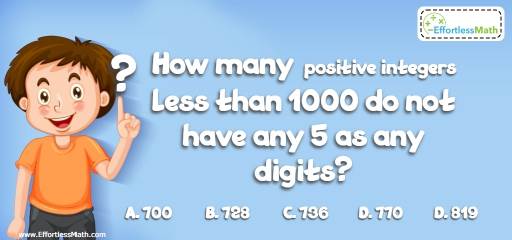
Challenge:
How many positive integers less than 1000 do not have any 5 as any digits?
A- 700
B- 728
C- 736
D- 770
E- 819
The Absolute Best Book to challenge your Smart Student!
The correct answer is B.
Let’s consider 1 digit, 2 digits, and 3 digits numbers separately:
One digit number: From 9 1-digit numbers, eight numbers don’t have any digit as 5.
Two digits numbers: Put A for \(10^{th}\) place and B for unit place. Then, we have AB as a 2 digits number. We can put 8 digits for A (all digits except 0 and 5) and 9 digits for B (except 5). So, we’ll have 8 × 9 = 72 2-digits numbers that don’t have 5 as any digits.
For three digits numbers, ABC: For A, we can put 8 digits (not 0 or 5), for B, we have 9 digits (not 5) and for C, we have 9 digits (not 5). So, there are 648 three digits numbers that don’t have 5 as any digits. 8 × 9 × 9 = 648
In total: 8 + 72 + 648 = 728
The Absolute Best Books to Ace Algebra
Related to This Article
More math articles
- 3rd Grade New York State Assessments Math Worksheets: FREE & Printable
- The Ultimate PARCC Algebra 1 Course (+FREE Worksheets)
- GED Math Study guide: 11 Steps to pass the GED Test in 2026!
- How to Graph Radical Functions
- How to Simplify Fractions? (+FREE Worksheet!)
- The Ultimate 6th Grade RICAS Math Course (+FREE Worksheets)
- Best Desktop Computers For Online Math Teachers
- 8th Grade RICAS Math Worksheets: FREE & Printable
- FREE 7th Grade FSA Math Practice Test
- 6th Grade MCAP Math Worksheets: FREE & Printable
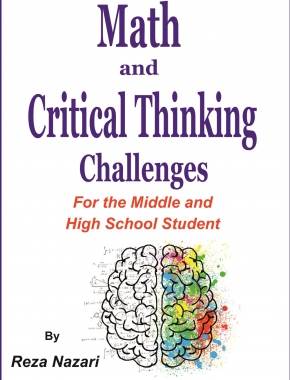
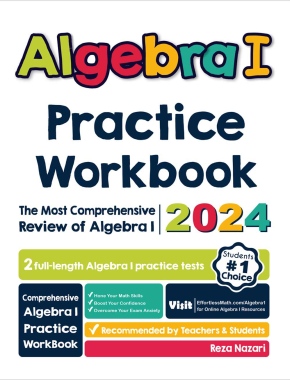

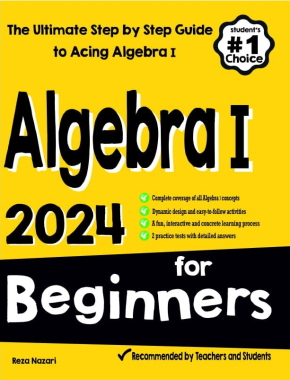
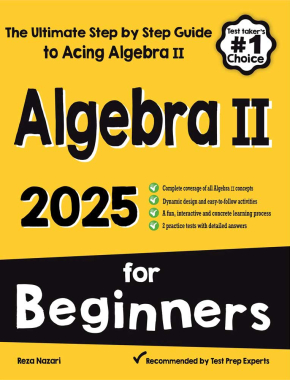
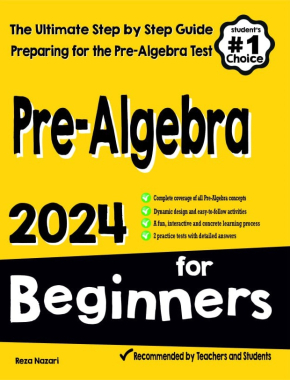





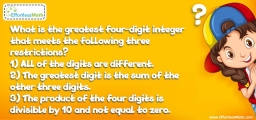
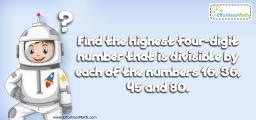
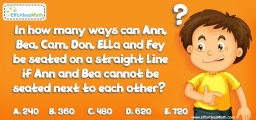

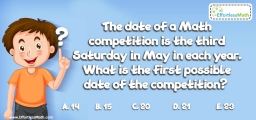
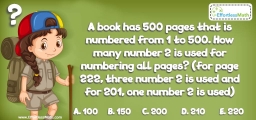
What people say about "Number Properties Puzzle – Challenge 11 - Effortless Math: We Help Students Learn to LOVE Mathematics"?
No one replied yet.